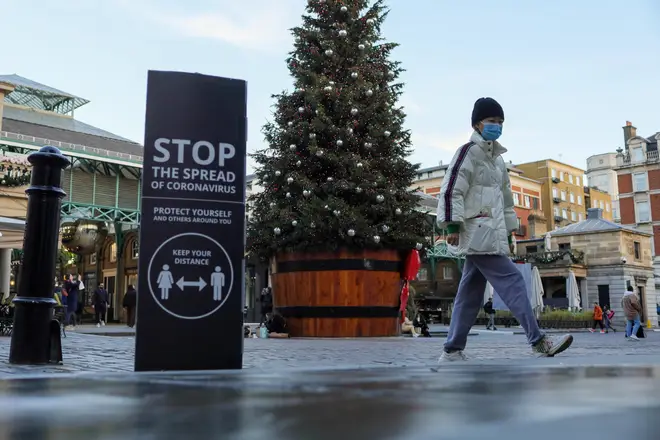
Iain Dale 7pm - 10pm
25 November 2020, 14:19

Chancellor Rishi Sunak has given his one-year Spending Review to the House of Commons.
He outlined the effect of the coronavirus pandemic on the economy and detailed changes to the National Living Wage and foreign aid.
But what were the key facts you need to know from the Chancellor's 25-minute speech on Wednesday?
- The Government is providing £280 billion this year to get the country through the coronavirus crisis.
- The Office for Budget Responsibility (OBR) is forecasting the economy will contract this year by 11.3% - the largest fall in output for more than 300 years.
- The OBR expects the economy to start recovering once Covid restrictions are lifted, growing by 5.5% next year, 6.6% in 2022, then 2.3%, 1.7% and 1.8% in the following years.
Read more: Rishi Sunak cuts public sector pay but gives boost to jobs in Covid 'emergency'
- The pandemic is likely to have caused "long-term scarring", meaning in 2025, the economy will be around 3% smaller than expected in the March Budget.
- The UK is forecast to borrow a total of £394 billion this year, equivalent to 19% of GDP - the highest recorded level of borrowing in peacetime history, according to Mr Sunak.
- Underlying debt is forecast to be 91.9% of GDP this year and is predicted to continue rising, reaching 97.5% of GDP in 2025/26.

The UK's "economic emergency has only just begun"
- The OBR expects unemployment to peak at 7.5% in the second quarter of 2021 - 2.6 million people.
- The National Living Wage will increase by 2.2% to £8.91 an hour.
- The Chancellor announced that NHS doctors and nurses will receive a pay rise, but pay rises in the rest of the public sector will be "paused" next year.
- The 2.1 million public sector workers who earn below the median wage of £24,000 will be guaranteed a pay rise of at least £250 next year, however.
- The overseas aid budget will be cut to 0.5% of gross national income in 2021 but Mr Sunak said the Government's "intention" was to return to 0.7% when the fiscal situation allows.
- Rishi Sunak told the Commons in his first Spending Review that the UK would give £10 billion of GNI to poorer countries in 2021.
- He said sticking to the United Nations target, enshrined in law in 2015, “is difficult to justify to the British people” at a time of “domestic fiscal emergency” with the highest peacetime levels of borrowing on record.

Chancellor announces increase in National Living Wage
- A new UK infrastructure bank - headquartered in the north of England - to finance major new projects is set to be established.
- A £4 billion "levelling up" fund to finance local infrastructure improvement projects will also be created, Mr Sunak said.
- The Chancellor said that through the Barnett formula, Scottish Government funding will increase by £2.4 billion and Welsh Government funding by £1.3 billion, with £0.9 billion for the Northern Ireland Executive.